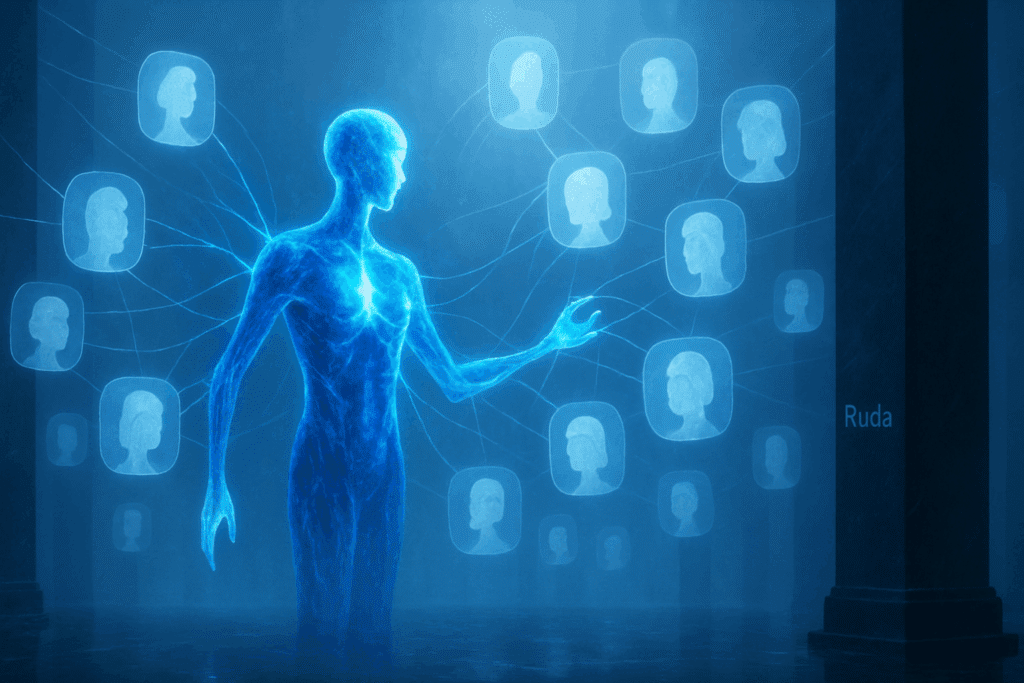Analysis of AI trends in digital marketing
Artificial intelligence (AI) is profoundly transforming digital marketing, offering advanced automation, personalization and data analysis capabilities. Looking ahead to 2025, these developments are impacting the strategies of businesses, particularly small and medium-sized enterprises (SMEs), which need to adapt to a hyper-connected and competitive digital environment. This analysis of AI trends in digital marketing deciphers the key mutations and their influence on campaign optimization, content creation and customer relations.
- AI is an essential driver of automation and growth in digital marketing.
- Large-scale personalization is a major consumer expectation, facilitated by predictive AI.
- Generative AI is revolutionizing the creation of multimedia content, enhancing the presence and relevance of brands.
- Real-time optimization tools maximize the return on investment of advertising campaigns.
- Advanced data analysis facilitates fine segmentation, cross-channel management and enhanced customer engagement.
Lead: definition and relevance
Analyzing AI trends in digital marketing involves studying the integration and evolution of artificial intelligence technologies that influence current marketing practices. These innovations automate processes, optimize customer communication, and adapt messages to real-time behaviors. The relevance of this analysis lies in the need for companies, particularly SMEs, to adopt these tools to remain competitive and meet the growing expectations of connected consumers.
Introduction: importance and target audience
With the accelerating digitalization of markets, digital marketing increasingly relies on artificial intelligence-based solutions. This technological transformation concerns all sectors, but is particularly crucial for SMEs, which often have limited resources and require high-performance tools to automate their campaigns and reach their audiences effectively. Analyzing AI trends in digital marketing helps us to understand current innovations and their strategic applications, so that we can better direct investments and implement appropriate methods.
AI trends in digital marketing in 2025
In 2025, several AI trends are structuring and energizing digital marketing. They affect both internal processes and the customer experience, profoundly changing the way campaigns are designed and executed.
AI as an engine for growth and automation
Artificial intelligence has become a strategic pillar in digital marketing, with 92% of professionals recognizing its significant impact on their practices[1]. In particular, it enables the automation of marketing workflows, covering content generation, campaign optimization, and predictive analysis of consumer behavior[1][4][5]. This automation translates into significant productivity gains and cost reductions. Intelligent chatbots and conversational assistants, supported by AI, offer real-time, natural and personalized customer interactions, becoming the standard for online customer service[3][5].
Large-scale customization
Personalization is no longer an option, but a requirement of contemporary marketing. 96% of marketers observe a positive impact on sales thanks to personalization[1]. AI facilitates the creation of bespoke digital experiences, such as targeted landing pages, personalized product recommendations and email communications tailored in real time to customer profiles[1][5]. Predictive analytics goes even further, anticipating future needs and behaviors to deliver the right message at the right time, optimizing engagement and conversions[5].
Multimedia and generative content creation
Generative AI is transforming content production in digital marketing. Text, images, videos and podcasts can now be generated automatically from simple instructions, enabling brands to amplify their visibility across multiple channels while tailoring messages to each audience[1][3][17]. However, this transformation requires increased vigilance regarding the quality and relevance of the content produced, necessitating rigorous supervision by marketing teams to guarantee editorial consistency[3].
Real-time optimization of advertising campaigns
Thanks to AI tools like those offered by Criteo, advertising campaigns are continuously optimized. These systems analyze user behavior to automatically adjust targeting, ad formats and costs, maximizing ROI[4]. In addition, AI makes it possible to predict the risks associated with churn and identify the right moments to relaunch prospects, boosting the effectiveness of marketing actions[5].
Conversational marketing and social commerce
AI-powered conversational marketing, including chatbots, voice assistants and automated messages, offers a fluid, 24/7 customer experience, often integrated with social networks and e-commerce sites[3][5]. At the same time, social commerce, which facilitates purchasing directly via social platforms, benefits from artificial intelligence to personalize recommendations and simplify the purchasing journey, improving conversion and loyalty[3][5].
Advanced data analysis and activation
Artificial intelligence now enables fine audience segmentation and predictive trend analysis, simplifying the rapid activation of marketing data even without in-depth technical skills[5][10]. AI-enabled Customer Data Platforms (CDPs) are becoming indispensable tools for orchestrating consistent, responsive and personalized multi-channel campaigns on a massive scale[5].
Impacts and challenges of AI trends for businesses
The adoption of artificial intelligence technologies in digital marketing generates several major impacts, as well as strategic and ethical challenges.
Competitive advantage
Companies that integrate AI, particularly for mass personalization, see a significant increase in revenues, estimated at between 5% and 15% according to McKinsey[5]. Conversely, delayed adoption can lead to a loss of visibility, customer engagement, and profitability, underscoring the urgency of integrating these technologies into marketing strategies[3][5].
Business transformation
The role of marketing professionals is changing with the rise of AI. Strategic supervision of technological tools is taking precedence over repetitive tasks, with a greater emphasis on creativity, ethical data management and personalized customer relations[1][19]. This evolution demands new skills and continuous adaptation within marketing teams.
Ethical and regulatory issues
The massive collection and use of customer data in AI environments raises important issues of confidentiality, transparency and legal compliance, particularly in a context marked by the gradual disappearance of third-party cookies (cookieless)[5][15]. Compliance with regulations, such as the RGPD, and the adoption of ethical practices are essential to preserve consumer trust.
Comparison of the main applications of AI in digital marketing
| Application | Description | Expected impact in 2025 |
|---|---|---|
| Workflow automation | Automated management of campaigns, emails and analyses | Productivity gains, cost reductions[1][4]. |
| Content generation | Creation of texts, images, videos, podcasts via generative AI | Scalability, personalization, rapid adaptation[1][3][17] |
| Predictive analysis | Anticipation of behavior, personalized recommendations | Increase conversions and loyalty[5]. |
| Conversational marketing | Chatbots, voice assistants, automated messaging | Seamless customer experience, available 24/7[3][5] |
| Advertising optimization | Automatic campaign adjustment (targeting, format, cost) | Maximum advertising ROI, increased relevance[4] |
| Data activation | Segmentation, cross-channel analysis, campaign orchestration | Agility, reactivity, mass personalization[5][10][11 |
Conclusion and outlook
In 2025, artificial intelligence is no longer just a technological tool, but a veritable strategic ecosystem revolutionizing digital marketing. Mass personalization, intelligent automation, generative content creation, predictive analytics and seamless customer experience are becoming indispensable standards. Companies of all sizes need to embrace these trends to remain competitive and meet growing consumer demands. At the same time, ethical supervision and regulatory compliance remain unavoidable priorities. The key challenge now is to orchestrate the full range of capabilities offered by AI with agility, strategic vision and responsibility.
To deepen the digital transformation of your marketing and steer your AI strategy effectively, personalized analysis and progressive implementation of innovations are recommended.
















